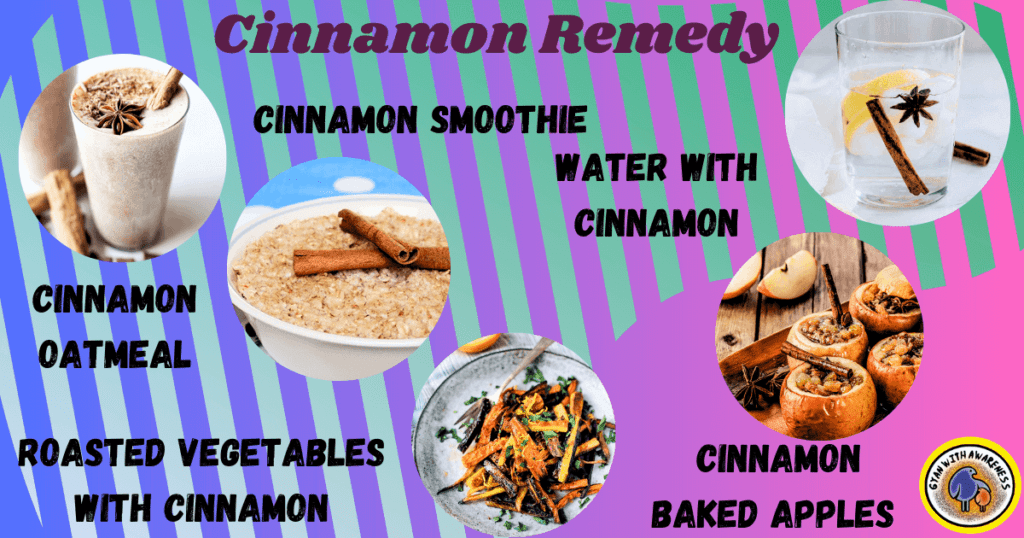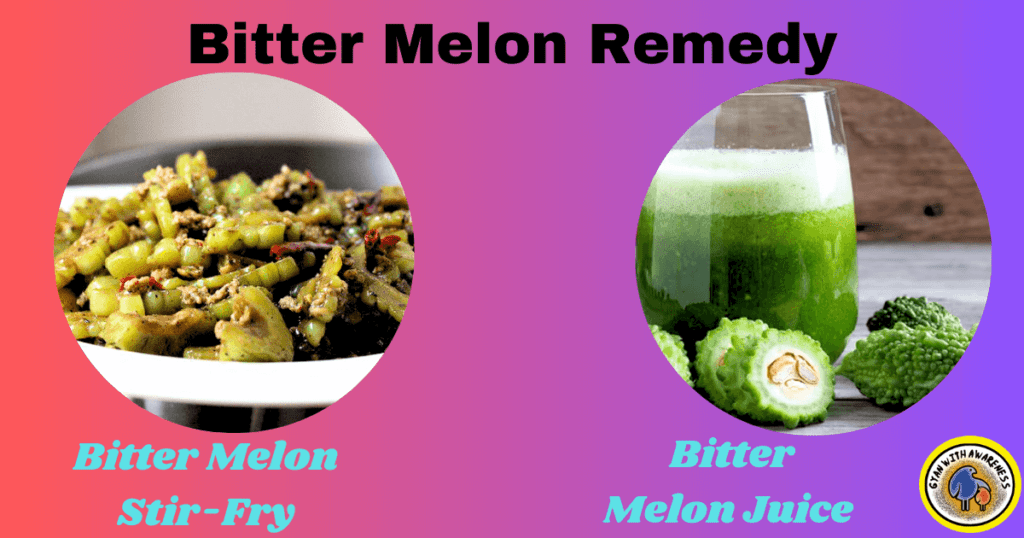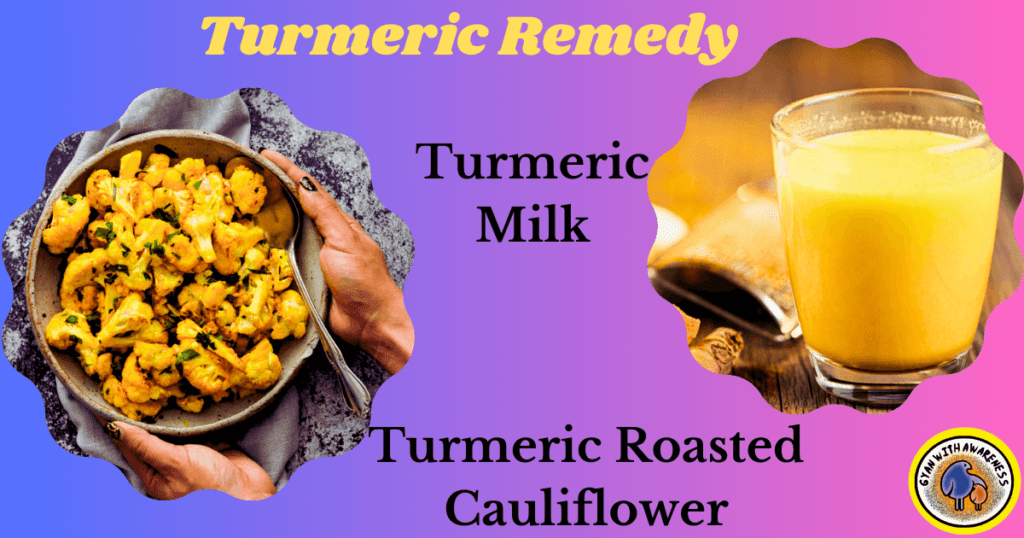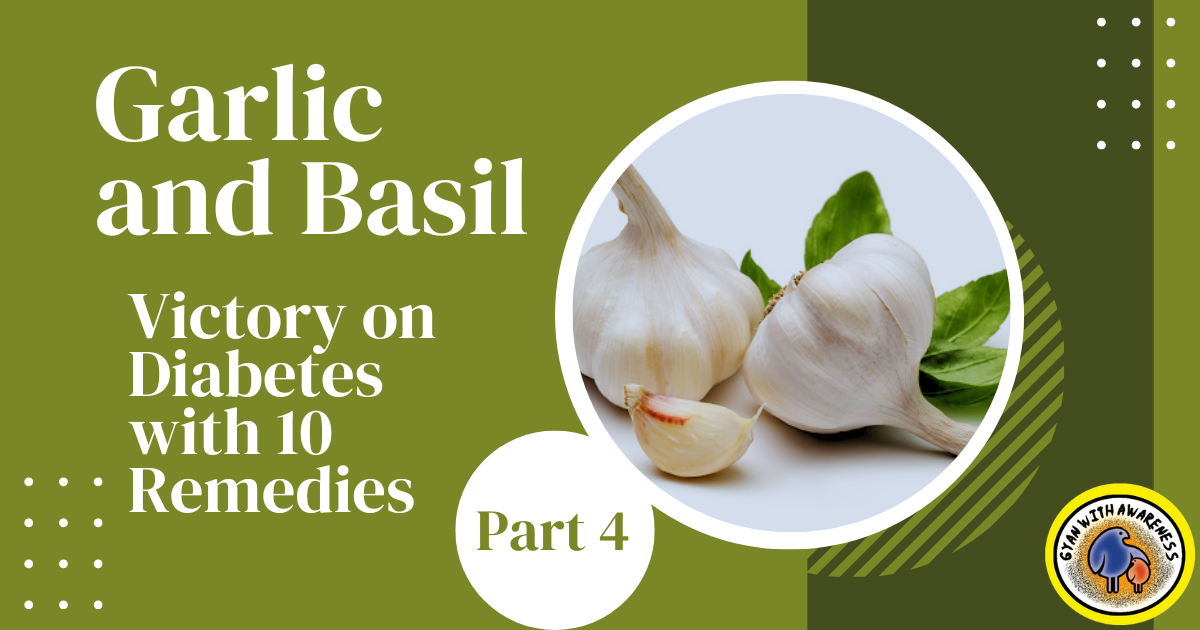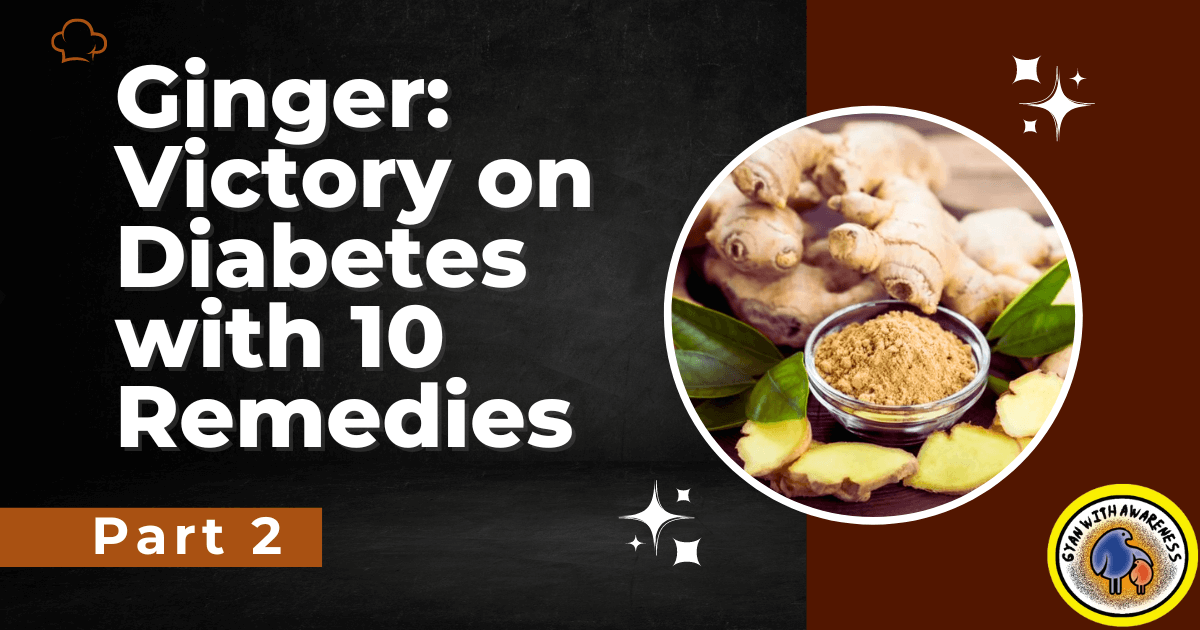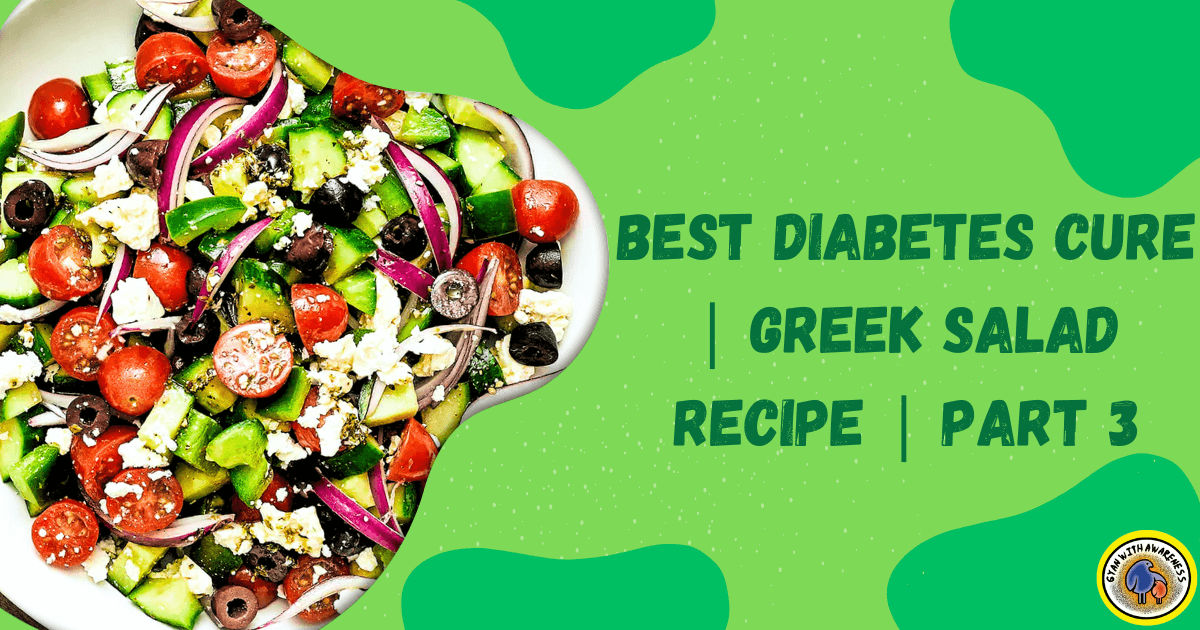Welcome to the third edition of “Cinnamon: Beat Diabetes with 10 Remedies.” Our investigation of herbal treatments and lifestyle modifications that can help people manage their diabetes effectively is continued in this section. We explore the potential of natural remedies that have demonstrated promise in controlling blood sugar levels, boosting insulin sensitivity, and promoting general health.
Cinnamon, a fragrant spice revered for its culinary allure, has garnered attention beyond the kitchen for its potential benefits in diabetes management. Emerging as a natural remedy, it has sparked interest due to its compounds that might impact blood sugar levels. As a staple in various cultures, cinnamon’s medicinal properties have prompted research into its effects on insulin sensitivity and glucose regulation. This intriguing connection between cinnamon and diabetes health opens a door to exploring alternative approaches in the intricate landscape of managing this condition. In this exploration, we delve into the potential roles and considerations of cinnamon in fostering better glucose control and overall well-being.
With a focus on usability, accessibility, and affordability, these treatments provide an addition to conventional diabetes management. By incorporating these natural remedies into your routine, you may take proactive steps to enhance your health and well-being. Let’s investigate the world of natural home remedies and equip ourselves with the knowledge and abilities needed to survive diabetes.

It’s crucial to keep in mind that natural home remedies shouldn’t take the place of professional counsel or licensed medication. Before making any significant alterations to your diabetes treatment strategy, always check with your healthcare practitioner. These suggestions are meant to supplement the care you already receive and give you the power to make decisions that are best for your health.
Join us as we set out on this informative examination of at-home remedies for diabetes. You can control your condition, boost your quality of life, and improve your general well-being by taking a holistic approach to health. Let’s explore the efficacy of natural treatments and open the door to a healthier, happier life with diabetes.
Read More: Rosemary: Victory on Diabetes with 10 Remedies- Part 1
Fight against Diabetes with Cinnamon Natural Home Remedies:
Harnessing the potential of cinnamon as a natural home remedy in the battle against diabetes has gained attention for its possible benefits. Cinnamon’s active compounds are believed to enhance insulin sensitivity, aiding cells in efficiently utilizing glucose. This spice may also regulate blood sugar levels by mimicking insulin’s actions and reducing post-meal spikes. Packed with antioxidants, cinnamon combats oxidative stress while its anti-inflammatory properties could contribute to improved metabolic health. Incorporating cinnamon into daily routines, such as adding it to meals or beverages, offers a holistic approach. However, consulting a healthcare professional is crucial before making substantial dietary changes or relying solely on cinnamon for diabetes management.
The Story Behind the Benefits of Remedies Against Diabetes:
The narrative of remedies against diabetes unveils a remarkable journey that intertwines centuries-old wisdom with modern scientific understanding. Rooted in traditional practices, these remedies have transcended time, holding secrets that ancient healers instinctively recognized. The gentle potency of herbs like cinnamon, the soothing embrace of aloe vera, and the fiery zest of ginger – all these remedies have been nurtured by generations who sought to alleviate the burdens of diabetes.
Today, science illuminates the intricacies behind their benefits. Research unveils the compounds that engage with the body’s intricate mechanisms, promoting better blood sugar control, enhancing insulin sensitivity, and reducing inflammation. These remedies offer a harmonious marriage between tradition and innovation, embodying the power of nature to complement medical interventions. Yet, as we delve deeper into their potential, we must tread with respect for their potency. Consulting healthcare professionals, understanding individual needs, and weaving these remedies into a holistic diabetes management strategy celebrates their rich story – a tale of healing, resilience, and the unbreakable bond between nature and nurture.
Remedies:
Cinnamon Remedy Recipe:
1. Water with cinnamon:
Every day, take half a teaspoon of cinnamon powder and warm water. It has been demonstrated that cinnamon lowers fasting blood sugar levels and increases insulin sensitivity.
2. Cinnamon Smoothie:
A teaspoon of cinnamon powder, some spinach, some apple or berry slices, and unsweetened almond milk should all be blended. The addition of this smoothie to a diabetic’s diet can be both healthful and delectable because cinnamon may help control blood sugar levels.
3. Cinnamon Baked Apples:
Core and slice an apple, sprinkle it with cinnamon powder, and bake until tender. This simple and tasty dessert option is a great way to enjoy the flavor and potential health benefits of cinnamon.
4. Cinnamon Oatmeal:
Sprinkle a teaspoon of cinnamon powder over your cooked oatmeal. Add a handful of nuts, some sliced berries, and a drizzle of honey for a delicious and diabetes-friendly breakfast that may help stabilize blood sugar levels.
5. Roasted vegetables with cinnamon:
Toss your preferred vegetables, including carrots, sweet potatoes, and Brussels sprouts, with a dash of salt, cinnamon, and olive oil. As a tasty side dish with potential health advantages, roast them in the oven until they are fork-tender.
How Cinnamon is beneficial for Diabetes?
Improved Insulin Sensitivity:
Cinnamon has shown the potential to enhance insulin sensitivity, allowing cells to better respond to insulin’s actions and aid glucose uptake.
Blood Sugar Regulation:
Active compounds in cinnamon can mimic insulin, potentially lowering blood sugar levels and reducing post-meal spikes.
Glucose Utilization:
Cinnamon might increase the uptake of glucose by cells, supporting more efficient use of blood sugar.
Glycemic Control:
Incorporating cinnamon in meals can lower the glycemic index of foods, leading to slower digestion and steadier blood sugar responses.
Anti-Inflammatory Effects:
Its anti-inflammatory properties could contribute to reducing inflammation associated with insulin resistance.
Heart Health:
Cinnamon may help lower cholesterol levels and improve blood circulation, promoting overall cardiovascular well-being.
Digestive Aid:
By aiding in stable blood sugar levels after meals, cinnamon supports digestion and minimizes post-meal spikes.
Metabolism Boost:
Cinnamon’s metabolism-enhancing qualities might indirectly aid in weight management, an essential aspect of diabetes care.
Simple Incorporation:
Adding cinnamon to daily routines is easy, whether sprinkled on food, mixed into beverages, or used in cooking and baking.
Cinnamon has a high antioxidant content that helps fight oxidative stress and lowers the incidence of diabetes-related problems.
Even while cinnamon has potential, it’s important to speak with a doctor before making any big dietary changes, especially if you’re taking medication or have underlying medical issues. Including cinnamon in a comprehensive diabetes care plan, together with medical advice, has the potential to improve blood sugar control and general well-being.
Curry Leaves Remedy Recipe:
1. Curry Leaves Chutney:
Blend fresh curry leaves with grated coconut, roasted chana dal (split chickpeas), green chilies, garlic, and a squeeze of lemon juice. This tangy and aromatic chutney can be enjoyed as a side with dosa, idli, or rice, providing the potential benefits of curry leaves for diabetes management.
2. Curry Leaves Tea:
Boil a handful of curry leaves in water for a few minutes. Strain the water and add a squeeze of lemon juice and a teaspoon of honey for taste. Enjoy this herbal tea to potentially support healthy blood sugar levels and promote overall well-being.
How Curry Leaves is Beneficial for Diabeties?
Blood Sugar Regulation:
Curry leaves are believed to help lower blood sugar levels by influencing insulin activity and improving glucose utilization.
Enhanced Insulin Function:
Active compounds in curry leaves might enhance insulin secretion and improve its functioning, aiding in blood sugar control.
Reduced Glycemic Index:
Incorporating curry leaves into meals can potentially lower the glycemic index of foods, leading to slower absorption of sugars and stable blood sugar levels.
Antioxidant-Rich:
Curry leaves are packed with antioxidants that combat oxidative stress, reducing the risk of complications associated with diabetes.
Improved Lipid Profile:
These leaves may help lower cholesterol and triglyceride levels, contributing to cardiovascular health, a concern for diabetics.
Digestive Health:
Curry leaves support digestion and may prevent post-meal blood sugar spikes by aiding in nutrient absorption.
Anti-Inflammatory Effects:
Their anti-inflammatory properties could help reduce inflammation associated with insulin resistance.
Nerve Protection:
Curry leaves are suggested to have neuroprotective effects, potentially aiding in preventing nerve damage (neuropathy) linked to diabetes.
Weight Management:
Curry leaves may assist in weight management due to their metabolism-boosting properties, which can indirectly benefit diabetes control.
Easy Integration:
Curry leaves can be added to various dishes, making it convenient to incorporate into one’s diet for potential diabetes benefits.
Despite their potential, curry leaves should only be used in conjunction with a well-rounded diabetes control strategy that is supervised by medical professionals. Before making large dietary changes, it is essential to monitor your sugar levels and speak with a medical professional to verify their safety and successful integration.
Bitter Melon Remedy Recipe:
1. Bitter Melon Stir-Fry:
Slice bitter melon and stir-fry it with onions, garlic, and your choice of vegetables and protein. Season with spices like cumin, turmeric, and chili powder for added flavor. Regular consumption of bitter melon stir-fry may have potential benefits for managing blood sugar levels.
2. Bitter Melon Juice:
Blend peeled bitter melon with a little water, strain the juice, and drink it on an empty stomach. Bitter melon juice is believed to have properties that may help regulate blood sugar levels. You can add a dash of lemon juice or honey to improve the taste if desired.
How Bitter Melon is beneficial for Diabetes?
Blood Sugar Control:
The bitter melon includes substances that may increase glucose absorption and enhance insulin sensitivity to lower blood sugar levels.
Improved Insulin Function:
Active components in bitter melon are believed to enhance insulin secretion and function, aiding in better blood sugar control.
Reduced Postprandial Spikes:
Bitter melon consumption might lead to slower digestion and absorption of carbohydrates, resulting in reduced post-meal blood sugar spikes.
Antioxidant Power:
Bitter melon is rich in antioxidants that combat oxidative stress, reducing the risk of diabetes-related complications.
Enhanced Lipid Profile:
Bitter melon may contribute to lowering LDL cholesterol and triglyceride levels, promoting cardiovascular health.
Anti-Inflammatory Properties:
Its anti-inflammatory effects could help reduce inflammation associated with insulin resistance.
Pancreatic Health:
Bitter melon is believed to have protective effects on pancreatic cells, which play a crucial role in insulin production.
Gut Health:
Bitter melon supports digestion and may have prebiotic properties, promoting a healthy gut microbiome.
Weight Management:
Its potential to suppress appetite and reduce calorie intake might indirectly aid in weight management, important for diabetes control.
Varied Consumption Methods:
Bitter melon can be consumed in various forms, such as cooked, juiced, or supplemented, making it adaptable to different preferences.
While bitter melon holds potential benefits, its consumption should be discussed with healthcare professionals, especially for those on medications or with specific health conditions. Integrating bitter melon into a balanced diabetes management plan, along with medical guidance, can offer potential advantages for blood sugar control and overall well-being.
Turmeric Remedy Recipe:
1. Turmeric Milk:
Heat a cup of milk (can be dairy or plant-based) with a teaspoon of turmeric powder, a pinch of black pepper, and a touch of honey or a natural sweetener. Stir well and enjoy this warm and comforting beverage that may provide anti-inflammatory and blood sugar-balancing properties.
2. Turmeric Roasted Cauliflower:
Toss cauliflower florets with turmeric, olive oil, salt, and pepper. Roast them in the oven until golden brown and tender. This flavorful and nutritious side dish can complement any meal while adding the potential health benefits of turmeric.
How Turmeric is beneficial for Diabetes?
Improved Insulin Sensitivity:
Curcumin, the active compound in turmeric, may enhance insulin sensitivity, aiding cells in utilizing glucose effectively.
Blood Sugar Regulation:
Turmeric’s compounds might contribute to stabilizing blood sugar levels by supporting insulin activity and reducing insulin resistance.
Enhanced Glucose Utilization:
Curcumin may increase glucose uptake by cells, helping to maintain balanced blood sugar levels.
Reduced Glycemic Response:
Adding turmeric to meals can potentially lower the glycemic index of foods, leading to steadier blood sugar responses.
Antioxidant Power:
Turmeric is known for its potent antioxidant properties, reducing oxidative stress and the risk of diabetes-related complications.
Anti-Inflammatory Effects:
Its anti-inflammatory qualities could help alleviate inflammation linked to insulin resistance.
Cardiovascular Health:
Turmeric may lower cholesterol levels, improve blood vessel function, and reduce cardiovascular risks often associated with diabetes.
Pancreatic Function:
Curcumin might help protect pancreatic cells, supporting insulin production and release.
Weight Management:
Turmeric’s potential to influence fat metabolism could indirectly aid in weight management, an important aspect of diabetes care.
Easy Integration:
Turmeric can be added to various dishes and beverages, making it a versatile and accessible addition to a diabetes-friendly diet.
As with any supplement or natural remedy, consulting healthcare professionals before making significant dietary changes is vital, especially if you’re on medications or have existing health conditions. Integrating turmeric into a well-balanced diabetes management approach, under medical guidance, can offer potential benefits for blood sugar control and overall health.
A special recipe to prevent diabetes and give one’s energy a boost:
Ingredients:
- 1 medium-sized bitter melon
- Handful of fresh curry leaves
- 1 teaspoon of turmeric powder
- One glass of water
Preparation:
Step 1: First, wash the sour melon and take out the seeds. Slice it into little pieces.
Step 2: Combine the pieces of bitter melon, curry leaves, and turmeric powder in a blender.
Step 3: Process the mixture into a smooth paste.
Step 4: Bring a glass of water to a boil in a pan.
Step 5: Pour the boiling water and simmer for 5 to 10 minutes.
Step 6: Remove the mixture from the heat and let it cool.
Usage:
A. Strain the mixture to remove any solid particles.
B. Drink this remedy once daily on an empty stomach.
C. Repeat the process for a few weeks to see potential benefits.
.
This remedy combines the medicinal properties of curry leaves, bitter melon, and turmeric. Curry leaves are rich in antioxidants and may help improve insulin sensitivity. Bitter melon contains compounds that can help regulate blood sugar levels. Turmeric has anti-inflammatory properties and may aid in managing diabetes. As with any remedy, it’s important to consult with a healthcare professional before trying it, especially if you’re on any medications or have underlying health conditions.
In conclusion, Diabetes and Natural Home Remedies provide a valuable alternative approach to managing diabetes and promoting overall well-being. These remedies offer a holistic approach, focusing on blood sugar control, minimizing side effects, and incorporating nutrient-rich ingredients into the diet. The personalized nature of natural remedies allows individuals to tailor their approach to their specific needs and preferences.
It’s crucial to keep in mind though that using natural remedies in addition to traditional medical treatment and under a doctor’s supervision is always a good idea. They are not meant to be a substitute for prescription drugs or expert medical advice. An individual can take proactive measures for better health and benefit from a more natural and holistic approach to diabetes treatment by incorporating natural home remedies into a comprehensive diabetes management plan.
FAQ:
What is the benefit of cinnamon?
Cinnamon offers several potential benefits, including improved insulin sensitivity, and aiding cells in better responding to insulin. It may regulate blood sugar levels by mimicking insulin actions, reducing post-meal spikes. With antioxidants and anti-inflammatory properties, it combats oxidative stress and inflammation. Incorporating cinnamon in meals can lower the glycemic index, supporting stable blood sugar responses. While these benefits hold promise, it’s essential to consult healthcare professionals before making significant dietary changes, especially for individuals with diabetes or underlying health conditions.
What is cinnamon tea good for?
Cinnamon tea offers a range of potential benefits. Its active compounds, like cinnamaldehyde, have antioxidant and anti-inflammatory properties that combat oxidative stress and inflammation. Drinking cinnamon tea may aid in digestion, alleviate bloating, and support weight management by boosting metabolism. It could help regulate blood sugar levels by enhancing insulin sensitivity and reducing post-meal spikes. Additionally, cinnamon tea’s warm and soothing nature can promote relaxation. However, it’s important to consult healthcare professionals before incorporating cinnamon tea into your routine, especially if you have health conditions or are on medications.
Who should not drink cinnamon?
Individuals who should avoid or limit cinnamon intake include those with allergies to cinnamon, as it can trigger allergic reactions. People on blood-thinning medications should be cautious, as cinnamon can have anticoagulant effects that might interact with these medications. Pregnant or breastfeeding women should also moderate cinnamon consumption, as its safety in these situations isn’t well-established. Additionally, individuals with liver conditions might need to avoid large amounts of cinnamon due to potential coumarin content. Consulting healthcare professionals is essential, especially for those with allergies, medical conditions, or medication regimens.
